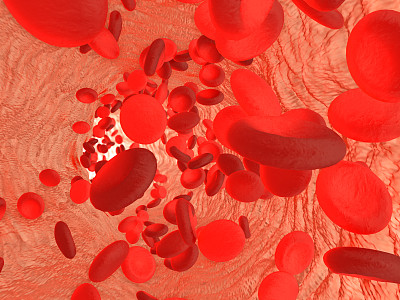International Collaboration in Cardiovascular Disease Treatment Breaking Borders and Saving Lives
original:health91192025-02-19 11:54:23
Summary: International Collaboration in Cardiovascular Disease Treatment: Breaking Borders and Saving Lives highlights the importance of global cooperation in addressing cardiovascular diseases, tra
Summary: International Collaboration in Cardiovascular Disease Treatment: Breaking Borders and Saving Lives highlights the importance of global cooperation in addressing cardiovascular diseases, transcending geographical limitations to enhance patient outcomes and save lives.
1. Global Partnership in Research

International collaboration in cardiovascular disease research has led to significant advancements in understanding the mechanisms of heart diseases and developing innovative treatment modalities. By pooling resources, expertise, and data from diverse regions, researchers can accelerate the pace of discovery and make breakthroughs that benefit patients worldwide.
Collaborative efforts in clinical trials also allow for the recruitment of larger and more diverse patient cohorts, leading to more robust data analysis and a greater generalizability of research findings. This shared knowledge and evidence-based practices contribute to the continual improvement of cardiovascular care across borders.
Furthermore, global partnerships in research promote the exchange of best practices, foster cross-cultural learning, and drive excellence in scientific endeavors. By breaking down silos and promoting open communication, researchers can collectively address complex challenges in cardiovascular health and bring about positive change on a global scale.
2. Cross-national Training Programs
International collaboration in cardiovascular disease treatment extends to the realm of healthcare education and training. Cross-national programs, such as medical exchanges, workshops, and fellowships, provide healthcare professionals with opportunities to enhance their skills, knowledge, and expertise in the field of cardiology.
Through these collaborative initiatives, healthcare providers can learn about diverse clinical practices, cultural nuances, and technological advancements in cardiovascular care from different parts of the world. This exposure to varied perspectives and approaches enriches their clinical practice, broadens their horizons, and fosters a spirit of continuous learning and improvement.
Additionally, cross-national training programs promote the sharing of resources, techniques, and protocols for managing cardiovascular diseases, leading to a more standardized and effective approach to patient care. This harmonization of practices ensures consistency in treatment outcomes and enhances the quality of healthcare delivery globally.
3. Telemedicine and Remote Consultations
The rise of telemedicine and remote consultations has revolutionized the provision of cardiovascular care, transcending geographical barriers and expanding access to expertise for patients in remote or underserved areas. International collaboration in telehealth enables patients to receive timely consultations, diagnosis, and treatment recommendations from renowned cardiovascular specialists across the globe.
Through virtual platforms and telecommunication technologies, healthcare providers can engage in real-time discussions, share medical images and records, and collaborate on treatment plans for patients with complex cardiovascular conditions. This seamless exchange of information and expertise facilitates interdisciplinary teamwork and ensures comprehensive care for patients regardless of their location.
Furthermore, telemedicine in cardiovascular disease treatment allows for continuous monitoring, follow-up care, and patient education, promoting better adherence to treatment regimens and improving long-term health outcomes. This innovative approach to healthcare delivery underscores the power of technology in breaking down borders and saving lives.
4. Policy Advocacy and Health Diplomacy
International collaboration in cardiovascular disease treatment also extends to policy advocacy and health diplomacy, where stakeholders work together to advocate for policies that promote cardiovascular health, prevent disease, and improve access to care on a global scale. By leveraging collective expertise and influence, advocates can drive policy changes that prioritize cardiovascular health as a public health imperative.
Health diplomacy initiatives foster partnerships between governments, healthcare organizations, and advocacy groups to address common challenges in cardiovascular care, such as reducing disparities in access to treatment, promoting preventive measures, and strengthening healthcare systems. These collaborative efforts facilitate knowledge sharing, resource mobilization, and the development of sustainable strategies for improving cardiovascular outcomes worldwide.
Through joint advocacy efforts, international stakeholders can raise awareness about the burden of cardiovascular diseases, advocate for increased funding for research and intervention programs, and mobilize support for initiatives that promote heart health and well-being across borders. This unified approach to policy advocacy underscores the collective commitment to breaking barriers and saving lives in the fight against cardiovascular diseases.

Summary:
International Collaboration in Cardiovascular Disease Treatment: Breaking Borders and Saving Lives highlights the transformative impact of global cooperation in advancing cardiovascular care, fostering innovation, promoting excellence in healthcare delivery, and improving patient outcomes worldwide. By transcending geographical boundaries and leveraging diverse expertise, resources, and technologies, international collaboration holds the key to addressing the complex challenges of cardiovascular diseases and saving lives on a global scale.
This article is published by HEALTH9119 Medical Health Network https://www.health9199.com arrangement